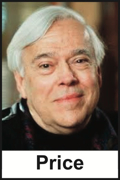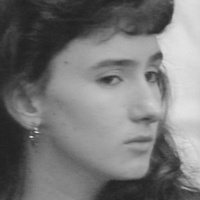Rascals case in brief
In the beginning, in 1989, more than 90 children at the Little Rascals Day Care Center in Edenton, North Carolina, accused a total of 20 adults with 429 instances of sexual abuse over a three-year period. It may have all begun with one parent’s complaint about punishment given her child.
Among the alleged perpetrators: the sheriff and mayor. But prosecutors would charge only Robin Byrum, Darlene Harris, Elizabeth “Betsy” Kelly, Robert “Bob” Kelly, Willard Scott Privott, Shelley Stone and Dawn Wilson – the Edenton 7.
Along with sodomy and beatings, allegations included a baby killed with a handgun, a child being hung upside down from a tree and being set on fire and countless other fantastic incidents involving spaceships, hot air balloons, pirate ships and trained sharks.
By the time prosecutors dropped the last charges in 1997, Little Rascals had become North Carolina’s longest and most costly criminal trial. Prosecutors kept defendants jailed in hopes at least one would turn against their supposed co-conspirators. Remarkably, none did. Another shameful record: Five defendants had to wait longer to face their accusers in court than anyone else in North Carolina history.
Between 1991 and 1997, Ofra Bikel produced three extraordinary episodes on the Little Rascals case for the PBS series “Frontline.” Although “Innocence Lost” did not deter prosecutors, it exposed their tactics and fostered nationwide skepticism and dismay.
With each passing year, the absurdity of the Little Rascals charges has become more obvious. But no admission of error has ever come from prosecutors, police, interviewers or parents. This site is devoted to the issues raised by this case.
On Facebook
Click for earlier Facebook posts archived on this site
Click to go to
Today’s random selection from the Little Rascals Day Care archives….
Click for earlier Facebook posts archived on this site
Click to go to
Today’s random selection from the Little Rascals Day Care archives….
‘Overwhelming power’ in the worst possible hands
Dec. 23, 2011
 “Many appalling results of the recovered-memory movement of the 1970s and ’80s arose from … unexamined views of memory – occurrences like the false accusations of employees of children’s care centers… Such fantasies have often been encouraged as reliable memories by doctrinaire therapists and have sometimes resulted in prison sentences and ruined lives for innocent fathers, mothers, kin, teachers and devoted caretakers.
“Many appalling results of the recovered-memory movement of the 1970s and ’80s arose from … unexamined views of memory – occurrences like the false accusations of employees of children’s care centers… Such fantasies have often been encouraged as reliable memories by doctrinaire therapists and have sometimes resulted in prison sentences and ruined lives for innocent fathers, mothers, kin, teachers and devoted caretakers.
“The documentary films made by Ofra Bikel … are meticulous and frightening accounts of such fantasies and their overwhelming power in the hands of the cruelest, most self-deluded and most easily panicked among us.”
– From “Ardent Spirits” by the late Reynolds Price (2009)
Little Rascals: A ‘travesty of justice’ for the ages
June 20, 2012
“The Little Rascals case still remains the greatest travesty of justice I’ve ever been associated with or seen or even heard about… since like 1960.”
– Joe Cheshire, attorney for Bob and Betsy Kelly (Triangle Business Journal, 1998)
Where do you stand, Edenton, on the Little Rascals case?
May 17, 2018
In recent years the Little Rascals Day Care case, probably the most significant event in Edenton in the 20th century, seems to have been a taboo subject in the local Chowan Herald and in the Daily Advance of Elizabeth City. I’m grateful that the Herald has published my letter to the editor in this week’s edition:
 “In the 1990s the town of Edenton was torn apart by the Little Rascals Day Care case, in which seven local people were accused of ‘satanic ritual abuse’ of dozens of children. The case attracted reporters from the New York Times and Washington Post and received eight hours of documentary coverage on PBS’s “Frontline” series. Co-owner Bob Kelly’s trial was the longest and costliest in North Carolina history. After Kelly served six years in prison and cook Dawn Wilson three, their convictions were overturned.
“In the 1990s the town of Edenton was torn apart by the Little Rascals Day Care case, in which seven local people were accused of ‘satanic ritual abuse’ of dozens of children. The case attracted reporters from the New York Times and Washington Post and received eight hours of documentary coverage on PBS’s “Frontline” series. Co-owner Bob Kelly’s trial was the longest and costliest in North Carolina history. After Kelly served six years in prison and cook Dawn Wilson three, their convictions were overturned.
“The Duke University Law School Library recently opened to researchers an exhibit and archive on the Little Rascals case, including the transcript of Bob Kelly’s trial and numerous other documents. ‘The case is one example of the preoccupation with perceived abuse taking place at daycares and preschools in the 1980s and 1990s,’ Duke wrote in its announcement. ‘Often, these cases also involved allegations of Satanism or devil worship. Like the Little Rascals case, most of these daycare abuse accusations turned out to be false.
“Today no reputable psychologist, social scientist or legal expert will argue otherwise. From Wikipedia to the National Registry of Exonerations, the defendants in cases such as Little Rascals are recognized as innocent victims of a bizarre ‘moral panic’ that bore striking similarities to the Salem witch hunts 300 years earlier.
“During the years-long prosecution of the Edenton Seven, townspeople were divided family vs. family, friends vs. friends. Today the former Little Rascals Day Care Center is being converted into housing – is that what would happen if townspeople believed it was the site of mass molestation of their children? So where now does Edenton stand?”
![]()
Defendants’ bond lowered to ‘only’ $200,000

frontline.org
Robin Byrum
Dec. 16, 2015
On this day 25 years ago: Bonds for Little Rascals employees Robin Byrum and Dawn Wilson are reduced to a still excessive $200,000 – Byrum’s from $500,000, Wilson’s from $880,000.
Byrum will be released four days later, Wilson not for eight weeks.
Because she went to trial and the jury returned a guilty verdict (eventually overturned), Wilson’s story is much better known.
But Byrum suffered her own coercive torture at the hands of prosecutors before charges were dropped in 1996.
Nineteen years old when she was arrested in January 1990, she spent almost a year in jail, leaving her 7-month-old baby in the care of her husband. Had she agreed to testify against Bob Kelly, she could have walked out a free woman – and mother.
In “Innocence Lost: The Plea” (1997), Byrum explained why she had been tempted by but repeatedly refused the prosecutors’ deal:
“…. I would not ever have to be separated from my child again. But then I’d have to live with the rest of my life that I (said I) did something when I didn’t do it.”











0 CommentsComment on Facebook